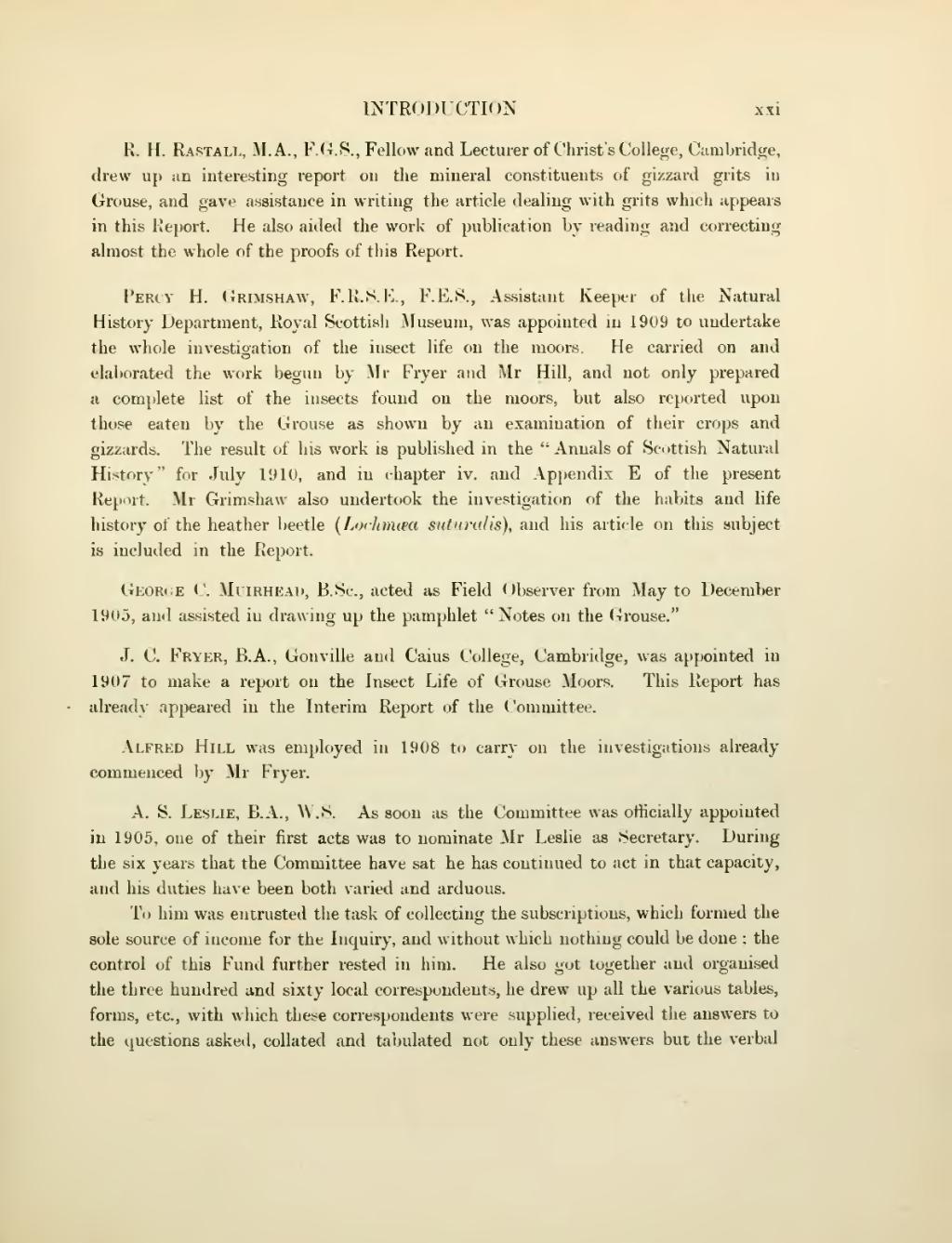R. H. Rastall, M.A., F.G.S., Fellow and Lecturer of Christ's College, Cambridge, drew up an interesting report on the mineral constituents of gizzard grits in Grouse, and gave assistance in writing the article dealing with grits which appears in this Report. He also aided the work of publication by reading and correcting almost the whole of the proofs of this Report.
Percy H. Grimshaw, F. R.S.E., F.E.S., Assistant Keeper of the Natural History Department, Royal Scottish Museum, was appointed in 1909 to undertake the whole investigation of the insect life on the moors. He carried on and elaborated the work begun by Mr Fryer and Mr Hill, and not only prepared a complete list of the insects found on the moors, but also reported upon those eaten by the Grouse as shown by an examination of their crops and gizzards. The result of his work is published in the "Annals of Scottish Natural History" for July 1910, and in chapter iv. and Appendix E of the present Report. Mr Grimshaw also undertook the investigation of the habits and life history of the heather beetle (Lochmæa suturalis), and his article on this subject is included in the Report.
George C. Muirhead, B.Sc, acted as Field Observer from May to December 1905, and assisted in drawing up the pamphlet "Notes on the Grouse."
J. C. Fryer, B.A., Gonville and Caius College, Cambridge, was appointed in 1907 to make a report on the Insect Life of Grouse Moors. This Report has already appeared in the Interim Report of the Committee.
Alfred Hill was employed in 1908 to carry on the investigations already commenced by Mr Fryer.
A. S. Leslie, B.A., W.S. As soon as the Committee was officially appointed in 1905, one of their first acts was to nominate Mr Leslie as Secretary. During the six years that the Committee have sat he has continued to act in that capacity, and his duties have been both varied and arduous.
To him was entrusted the task of collecting the subscriptions, which formed the sole source of income for the Inquiry, and without which nothing could be done; the control of this Fund further rested in him. He also got together and organised the three hundred and sixty local correspondents, he drew up all the various tables, forms, etc., with which these correspondents were supplied, received the answers to the questions asked, collated and tabulated not only these answers but the verbal
